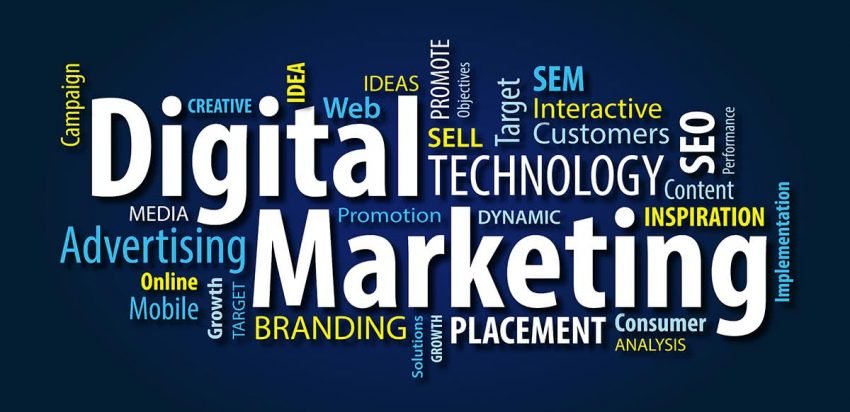Digital marketing encompasses all marketing efforts that use an electronic device or the internet. Businesses leverage digital channels such as search engines, social media, email, and websites to connect with current and prospective customers. Unlike traditional marketing methods, digital marketing allows for real-time analytics, enabling businesses to optimize their strategies on the fly.
Key Components of Digital Marketing
- Search Engine Optimization (SEO)
- What it is: SEO is the process of optimizing your website to rank higher in search engine results pages (SERPs). It involves on-page optimization (like keyword optimization, meta tags, and content quality) and off-page strategies (such as backlinking and social signals).
- Why it’s important: Higher rankings mean more visibility, which can lead to more organic traffic and, ultimately, more conversions.
- Tips: Focus on creating high-quality, relevant content that answers your audience’s questions. Regularly update your content to keep it fresh and use tools like Google Analytics and SEMrush to track your performance.
- Content Marketing
- What it is: Content marketing involves creating and sharing valuable content (like blog posts, videos, infographics, etc.) to attract and engage your target audience.
- Why it’s important: High-quality content can establish your brand as an industry leader, build trust with your audience, and improve your SEO efforts.
- Tips: Develop a content calendar to ensure consistent posting, and focus on creating evergreen content that remains relevant over time. Diversify your content formats to reach different segments of your audience.
- Social Media Marketing
- What it is: Social media marketing involves promoting your brand and content on platforms like Facebook, Instagram, Twitter, LinkedIn, and others.
- Why it’s important: Social media offers a direct line of communication with your audience, allowing for real-time interaction and engagement. It’s also a great way to build brand awareness and loyalty.
- Tips: Use a mix of organic and paid social strategies. Experiment with different types of content (e.g., videos, polls, stories) to see what resonates most with your audience. Utilize social media analytics tools to track performance and optimize your strategy.
- Email Marketing
- What it is: Email marketing involves sending targeted messages to a group of subscribers to promote your products, services, or content.
- Why it’s important: Despite the rise of social media, email remains one of the most effective channels for driving conversions. It allows for personalized communication and direct engagement with your audience.
- Tips: Segment your email list to deliver more personalized content. Use A/B testing to determine the best subject lines and calls to action. Make sure your emails are mobile-friendly.
- Pay-Per-Click (PPC) Advertising
- What it is: PPC is an online advertising model where advertisers pay a fee each time their ad is clicked. Common platforms include Google Ads and Facebook Ads.
- Why it’s important: PPC allows you to reach your audience quickly and efficiently. It’s a great way to drive traffic and conversions, especially when paired with SEO.
- Tips: Conduct thorough keyword research to identify the best keywords for your campaigns. Set clear goals for your PPC campaigns and monitor performance regularly to optimize your ad spend.
- Affiliate Marketing
- What it is: Affiliate marketing involves partnering with other businesses or influencers to promote your products in exchange for a commission on sales.
- Why it’s important: It allows you to leverage other people’s audiences to drive traffic and sales. It’s a low-risk way to expand your reach.
- Tips: Choose affiliates who align with your brand values and have an engaged audience. Provide them with the tools and resources they need to succeed, and track performance closely to ensure a good return on investment.
- Influencer Marketing
- What it is: Influencer marketing involves partnering with influencers—individuals with a large and engaged following—to promote your products or services.
- Why it’s important: Influencers can help you reach a broader audience and build trust through authentic endorsements.
- Tips: Choose influencers who resonate with your brand and audience. Set clear objectives for your campaigns and track metrics like engagement and conversions to measure success.
The Importance of Data and Analytics
Data is at the heart of digital marketing. The ability to track and measure performance in real-time allows you to make informed decisions and optimize your strategies for better results. Tools like Google Analytics, HubSpot, and social media analytics platforms provide valuable insights into your audience’s behavior, campaign performance, and ROI.
Top Digital Marketing Tools
- Google Analytics: Essential for tracking website traffic and user behavior.
- SEMrush: Great for SEO and competitive analysis.
- Hootsuite: A powerful tool for managing social media accounts.
- Mailchimp: A popular platform for email marketing.
- Canva: Ideal for creating stunning visuals for your campaigns.
Tips for a Successful Digital Marketing Strategy
- Set Clear Goals: Define what you want to achieve with your digital marketing efforts, whether it’s increasing brand awareness, generating leads, or boosting sales.
- Understand Your Audience: Conduct market research to understand who your audience is, what they care about, and where they spend their time online.
- Create High-Quality Content: Focus on creating content that provides value to your audience and aligns with their interests.
- Be Consistent: Consistency is key in digital marketing. Whether it’s posting on social media or sending out emails, make sure you’re consistently engaging with your audience.
- Monitor and Adapt: Digital marketing is not a set-it-and-forget-it strategy. Continuously monitor your performance and be ready to adapt your strategies based on what the data tells you.
Conclusion
Digital marketing is an ever-evolving field, but by mastering the fundamentals and staying up-to-date with the latest trends, you can effectively promote your brand and achieve your business goals. Remember, the key to success is understanding your audience, delivering value through high-quality content, and consistently optimizing your strategies based on data-driven insights.
Whether you’re just starting out or looking to refine your approach, this guide provides a solid foundation to help you navigate the digital marketing landscape. Start implementing these strategies today, and watch your brand grow in the digital world!
FAQ’s
WHAT is the scope of digital marketing?

